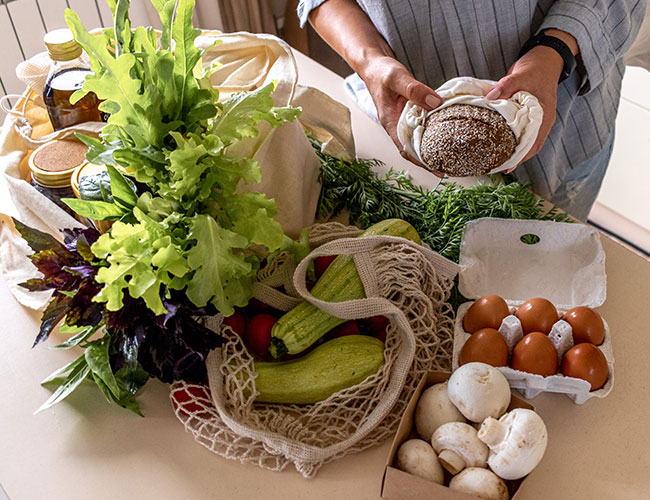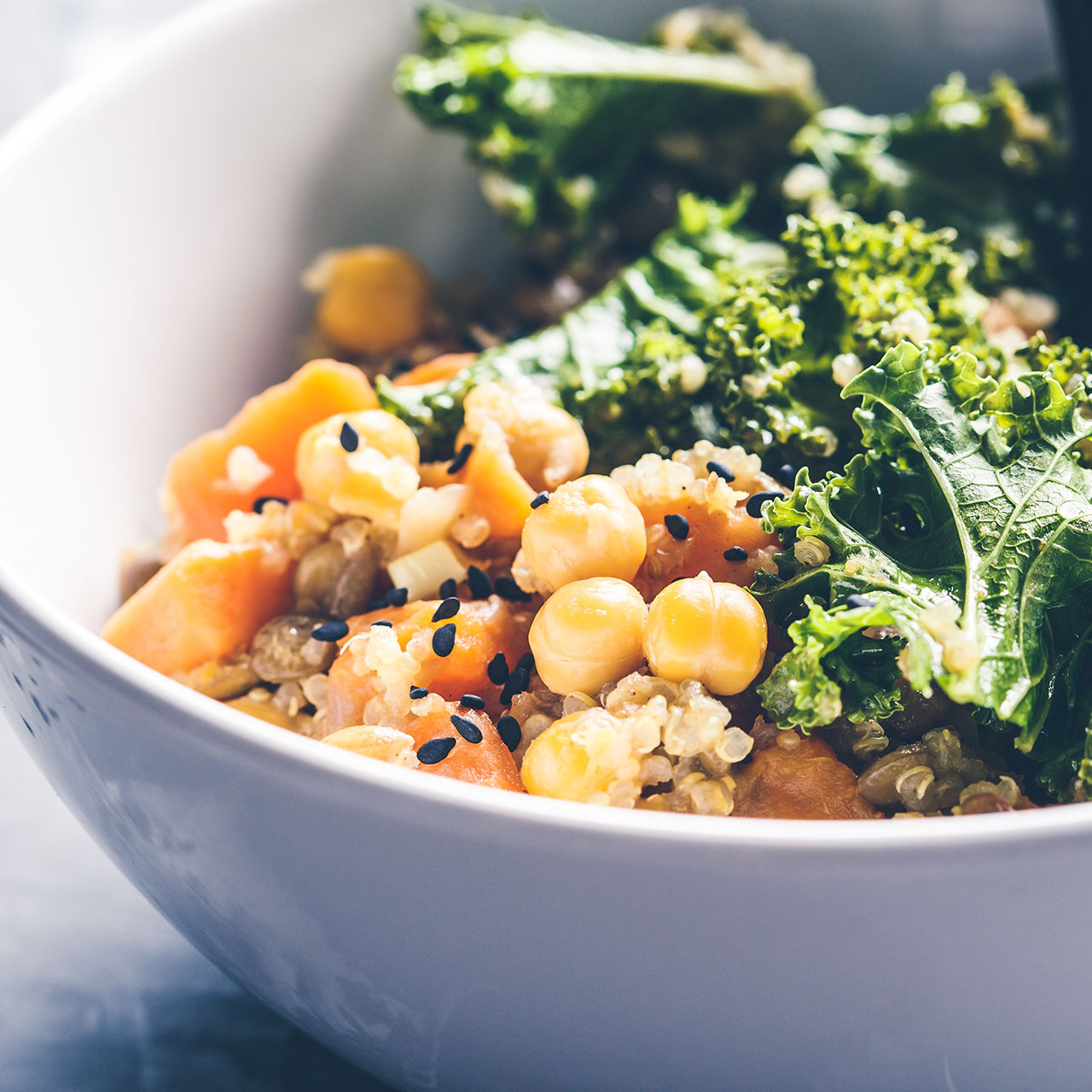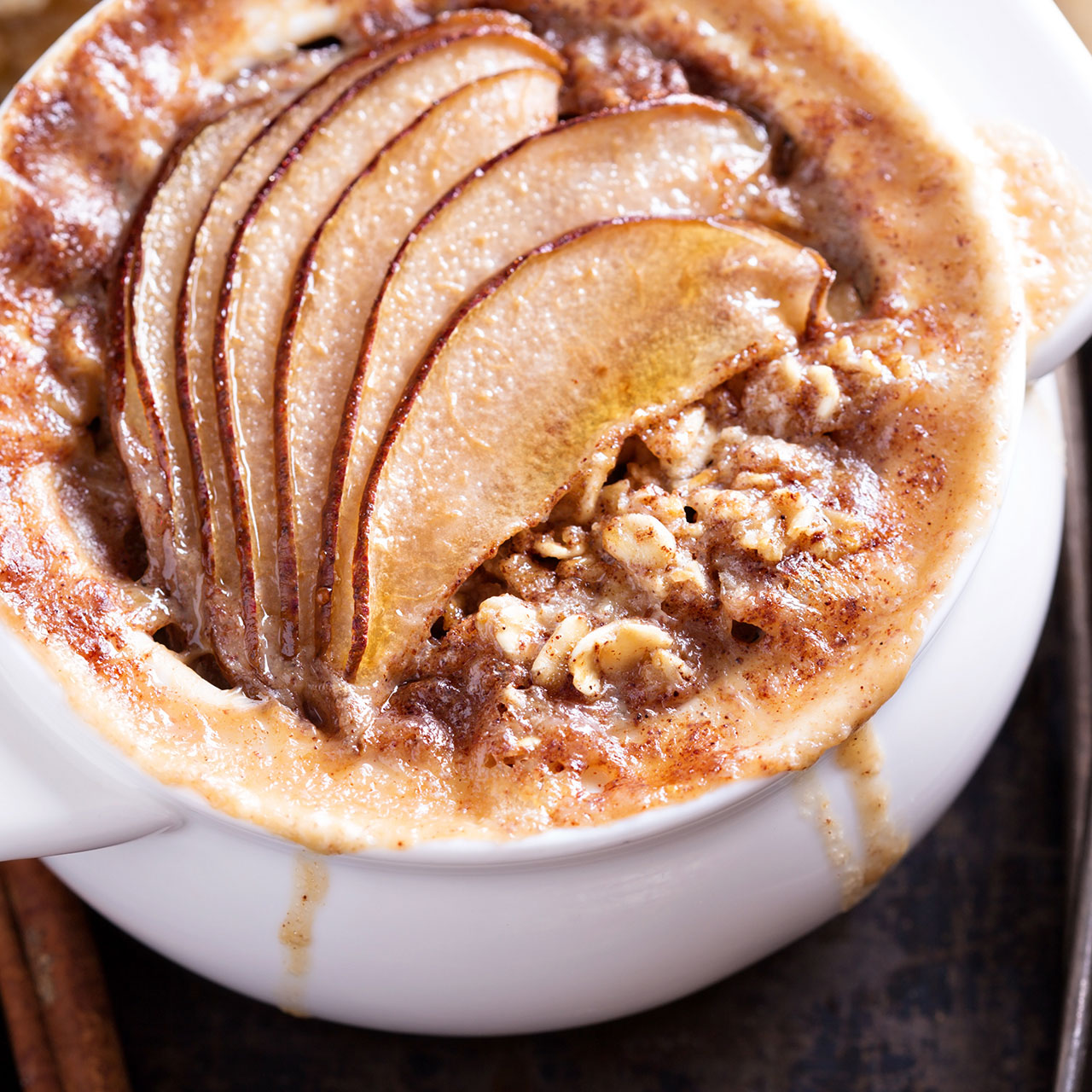Chronic inflammation is a health condition that can lead to many serious illnesses. According to Harvard Health, “Research has shown that chronic inflammation is associated with heart disease, diabetes, cancer, arthritis, and bowel diseases like Crohn’s disease and ulcerative colitis. It can be triggered, for example, when you are exposed to toxins, and by other causes such as chronic stress, obesity, and autoimmune disorders.”
In simplest terms, inflammation happens when your body protects itself from viruses, infections, and toxins. Your immune system is put to work as it defends your body from foreign invaders. However, when this occurs for too long, that means your body is constantly under attack—and that’s when it becomes a major concern.
Luckily, one way to reduce inflammation is by improving your diet. To know more about the habits you should incorporate in your lifestyle, we asked experts Erin Mewshaw, FNP-BC, clinical director at New York Center for Innovative Medicine and Dr. Amy Lee, board-certified doctor in internal medicine, medical nutrition, and obesity, and partner of Nucific. Keep reading for their advice.


Eat Fresh Fruits And Leafy Greens
According to Mewshaw, "The most common causes of inflammation are usually from poor diet. The body does not recognize the processed, heavy, greasy, sugary foods we eat nowadays, and infection (fungal, parasitic and bacterial). Unfortunately, in today's society the quality of food has gone down immensely." With that in mind, it's important to choose foods that have a great amount of nutritional value. Take for example, fruits and vegetables.
For fruits with anti-inflammatory properties, Dr. Lee recommends the following: Buddha's hand (citrus medical var. sarcodactylis), pomegranate, blueberries, and cherries. She shares, "[Buddha's hand] can stimulate macrophage activity and improve the immune system. Studies have shown that consistent intake of this food can also dilate the blood vessels which could improve circulation and blood pressure."
Dr. Lee adds that pomegranate is rich in antioxidants and that it "contains over 100 phytochemicals." She explains, "It is the red color of the polyphenols that are active with health benefits. Studies have shown the power of these antioxidants that reduce overall inflammation through various immunity pathways. Antioxidants can reverse the effects of free radicals in a cell from the process of aging and the everyday environment that the human body deals with."
As for blueberries and cherries, they contain compounds called anthocyanins, which "[help decrease] inflammation, especially anything related to metabolic syndrome," Dr. Lee notes.
When it comes to vegetables, Mewshaw believes that Swiss Chard is a good choice. She says, "Swiss Chard is an amazing leafy green that is very rich in both vitamin A and Vitamin K. Both of these vitamins play an important role in reducing inflammation in the body."

Drink Anti-Inflammatory Tea
Ginger tea, cinnamon tea, green tea, and turmeric tea are just some beverages with anti-inflammatory properties. Aside from these, Josh Schlottman, CSCS, certified personal trainer and nutritionist also recommends Rooibos tea which is commonly known as red tea. He mentions, "[It is] packed with rich antioxidants found in its natural polyphenols [and help fight off] damage-causing free radicals."
Sara Chatfield, MPH, RDN, registered dietitian and nutritionist, also points out that Rooibos tea "is naturally caffeine-free" and is known "to help with blood sugar regulation."
Overall, growing older isn't easy. As your body matures, keeping your health in check should be one of your top priorities. Making the necessary changes in your routine, such as eating nutritious food and drinking beverages with health benefits, will surely give your body the strength it deserves."


























